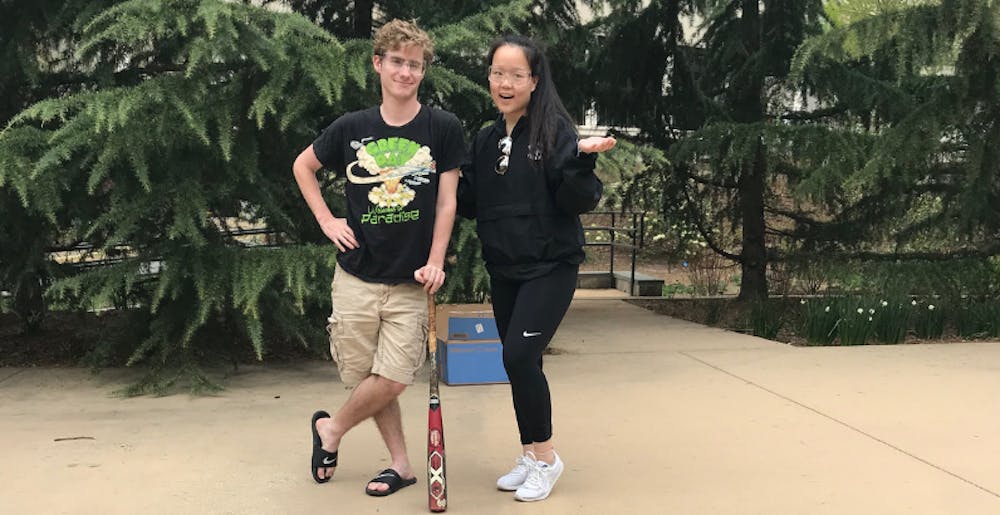AU sophomore Felipe Rangel’s sister Jacquie was diagnosed with an eating disorder when he was around 10. After receiving treatments, she co-founded a chapter of an organization that raised money for those suffering from eating disorders. Her brother followed in her footsteps.
In August of 2017, Felipe Rangel, who is studying international relations and Spanish, launched AU’s chapter of Project HEAL, the same organization of which his sister co-founded a chapter at the University of Miami. He wanted to take part in bringing awareness and assistance to people with eating disorders.
“It just seemed like a natural progression,” he said.
The national chapter of Project HEAL, an organization that was launched in 2008, has a goal to raise treatment funds for people with eating disorders.
Rangel said he finds more interest in the chapter from AU students “day by day.”
Earlier this month, AU’s chapter hosted a scale-smashing event, which took place to raise money for patient treatments and symbolized destroying “body negativity,” Rangel said.
For Eating Disorder Awareness Week, which lasted from Feb. 25 to March 3, the chapter hosted various events throughout the week, such as Body Positivity Night, which included trivia and activities to break stigmas and spread awareness of eating disorders.
AU’s Counseling Center told The Eagle in an email that students suffering from eating disorders should receive in-person assessment from mental or medical professionals. While the Counseling Center sees patients suffering from eating disorders, they also refer patients diagnosed with eating disorders to hospitals or other outside services that can benefit their treatment.
Support groups can be beneficial to those suffering, but “support groups alone are not an appropriate substitute for professional mental health evaluation and treatment,” Doctor Jen Bakalar, a licensed psychologist and staff clinician at the Counseling Center, wrote.
James Gray, an AU psychology professor whose research focuses on eating disorders, said that eating disorders, which most often affect women and girls, can derive from the urge to be thin combined with an individual’s insecurities.
Gray said that seeking treatment at the James J. Gray Psychotherapy Training Clinic in the Asbury building is also a resource for students. There are fees for treatment, but they are adjusted based on a client’s ability to pay.
If a person suspects their friend may be suffering from a disorder, they should sit them down for a conversation and encourage them to seek help, Gray said. He also said that when it comes to a disorder like anorexia nervosa, which involves self-starvation or excessive exercise, the person’s life is at risk.
“The first thing you have to do is save the life,” Gray said. “If she’s very very thin and could die on you, or get real sick, go get the meat on, and then you can do the therapy.”
If someone always goes to the bathroom right after they eat a meal, that could possibly be a warning sign for bulimia nervosa, a disorder that involves binging and purging food, Gray said. Experiencing changes, such as adapting to college life or graduating from college, may also put some at risk.
“Big transitions can bring on pathology if you’re not ready for them,” Gray said.





